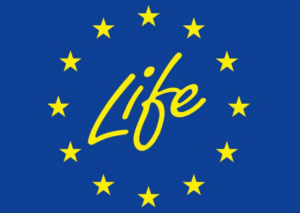MEPs fail to harness industrial pollution law to achieve climate goals
The failure of the European Parliament’s environment committee (ENVI) to demand limits on the amount of greenhouse gases industrial installations are allowed to emit undermines its proposal that the Industrial Emissions Directive should help achieve decarbonisation.
With 55 votes in favour, 26 against and six abstentions, MEPs on the European Parliament’s ENVI committee agreed their position on the reform of the Industrial Emissions Directive (IED), which is the main legal instrument regulating pollution from industrial installations in the European Union, based on a report by Radan Kanev of the European People’s Party.
Although the adopted report paid lip service for the need to integrate decarbonisation and energy efficiency into the IED, MEPs stopped short of equipping the directive with the tools necessary for the job.

“The ENVI committee’s vote on the Industrial Emissions Directive is peppered with omissions on an industrial scale. Failure to set greenhouse gas emissions limits in industrial permits reflects a blatant refusal to improve the IED’s capacity to protect the climate and contradicts the objectives of the European Green Deal,” said Agnese Ruggiero, Carbon Market Watch’s lead expert on industrial decarbonisation. “Industrial greenhouse gases cannot be left unchecked in the middle of a climate crisis. We call on EU policymakers to set serious limits on industrial pollution and agree to a more ambitious revision of the IED.”
Reactions from our allies
Christian Schaible, head of zero pollution industry at the European Environmental Bureau (EEB) said: “Decision-makers have missed the opportunity to require the largest polluters, namely operators of large combustion plants and refineries, to comply with strict emission performance levels by 2030. It is nonsense to make material efficiency standards optional. Why accept business-as-usual with a high cost to society for decades to come? We count on the European Parliament to put public interests back as first priority.”
Boris Jankowiak, steel transformation policy coordinator at Climate Action Network (CAN) Europe said: “All EU policies need to go in the same direction of drastically and urgently reducing greenhouse gas emissions, resource use and pollution: heavy polluting industry should not be an exception. Today, the European Parliament’s Environment committee voted to keep transformation plans in the Industrial Emissions Directive, a crucial step to help industry set out their pathway to clean production. However, it only partially delivered on this objective, especially as plans remain non-binding and most are allowed to be made at corporate level, instead of at industrial site level. Policymakers should now ensure that plans do not become an element of greenwashing and effectively drive industrial transformation forward.”
Bellinda Bartolucci, senior lawyer at ClientEarth said: “It is great to see that the ENVI committee has understood the importance of a functioning compensation right – one that means people genuinely have a chance to seek justice when they have been affected by illegal pollution. Its compromise is the minimum required to allow victims suffering from cancer, heart disease and other severe health damage to confidently ask for compensation when they are exposed to dangerous industrial emissions. This is also a breakthrough for EU policy – compensation rights, which already exist in other fields, are finally starting to appear also in environmental laws. They are vital for access to justice, and we are relieved that policymakers are starting to recognise that.”

© Carbon Market Watch 2022
EU Transparency Register ID 75365248559-90

Carbon Market Watch receives funding from the European Union. Views and opinions expressed are however those of the author(s) only and do not necessarily reflect those of the European Union.



